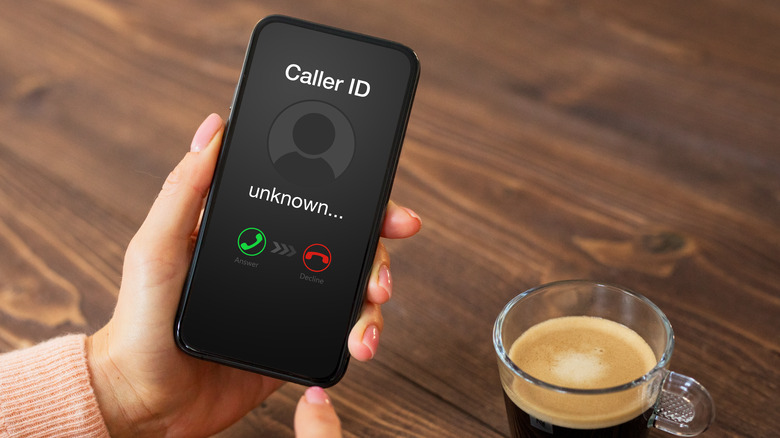How The FCC Is Cracking Down On Robocallers
Nobody likes robocalls, junk messages, or unwanted texts. At best these intrusions are obnoxious (and almost uncannily ill-timed), and at worst they're trying to steal money or personal information. The Federal Communications Commission (FCC) has been combating all of this for years, but despite making strides in the fight against phone spam there's still no end in sight. Even so, the agency is continuing to push back against this nonsense and the various approaches it takes to try and skirt around established preventative measures.
With a documented record of almost four billion robocalls per month throughout 2020, it's a monumental task. Especially since it's cheap and easy for anyone with the knowhow to create large banks of robocall numbers, and to outright fake caller ID info to further trick recipients.
"I receive robocalls at home, in my office, on my landline, on my mobile," admitted FCC Chair Jessica Rosenworcel, "I've even received multiple robocalls sitting here on this dais. I want it to stop."
What's the FCC doing about it?
A problem like robocalls requires more than one solution. The FCC has and is continuing to hit robocallers (that have been caught) with hundreds of millions in fines. Phone companies are now required to provide customers with caller ID to make it easier for them to identify potential junk calls. It's also allowed mobile carriers to take it upon themselves to preemptively block robocalls before your phone even rings.
The commission also established a Robocall Mitigation Database, which requires providers to get certification with the FCC and to sometimes provide a list of the ways they are or intend to combat robocalls. Similar rules were also extended to "gateway providers" back in May, 2022, in an attempt to curtail robocalls originating from outside of the US.
Robotexts haven't been forgotten either, with Rosenworcel working to extend the same restrictions and protections against robocalls to unwanted text messages. If implemented, service providers would have to look into and preemptively block text that it deems to be spam, as they already do with calls.
What can you do about it?
Due to the unending nature of robocalls — and individuals who have no moral issues with trying to trick innocent people out of what little money they have — we can't rely on the FCC and phone carriers to handle everything. Of course the simplest and most direct way to deal with robocalls is to not deal with them at all. If you see an unfamiliar number, don't answer.
If the call appears to be coming from a legitimate place (i.e. your bank, internet provider, etc), don't take the call. Instead, call the company back, using its provided contact number, to make sure you're actually speaking to a verified representative. Also be wary of calls that ask you to press a button or say "Yes" to opt-out of future calls, as this could be used to fake purchase or charge authorization from you in the future.
Also be aware that, no matter how official or intimidating the call might seem, absolutely no organization (law enforcement, the FBI, credit card companies, etc) will ask for payments via gift cards. And be very wary of any calls that don't offer specific details, like "Your warranty is about to expire," "We have news about your package," or "There is a pending charge on your account."
You can also file an unwanted call complaint directly with the FCC, or report telemarketers that are disregarding the Do Not Call list. IRS scams can be reported to the Treasury Inspector General for Tax Administration (TIGTA).


